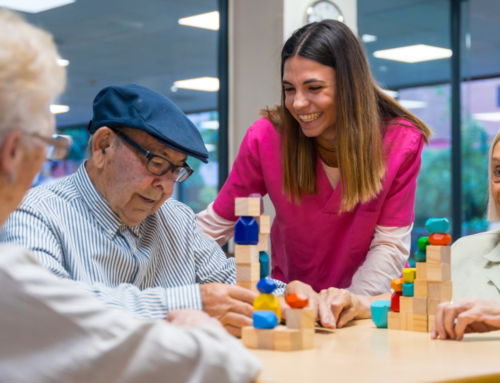Share This Story!
Home Care Makes Loved Ones Happy
For an aging or disabled loved one, getting the best home care is essential. People have different types and levels of disability. Having a home care service for support can provide peace of mind. Home care handles over 80% of Americans over 65. While the service has a significant upside, as time goes on, some signs may emerge that extra help is needed.
When home care isn’t enough
Just because home care services are available does not mean the family does not get involved. The family still supports doctor visits, emergencies, and care for after hours. The goal for the person receiving care is to stay independent as long as possible. Once these 4 signs start to show, home care may not be enough.
1. Health keeps declining
Some home care services only need to assist with daily chores like bathing or getting out of bed. But if health declines, home care may not be enough. Should issues like vision and speech fall, loved ones will need care from a specialist. If personal care or home care workers struggle to manage worsening health, advanced services can make a difference.
2. The cost keeps rising
The average cost of home care is $132 per day. That cost does not account for medicine, modified equipment, and doctor visits. There is an additional time factor, and loss of wages families should consider. If health and safety become an issue overnight, getting 24-hour home care shoots the cost up even more. Medicare can help with the expense, but only for set daily hours. The increasing costs could mean more specialized help is necessary.
3. An increase in absenteeism
With home care services, there will always be gaps between shifts. But what about absenteeism? If workers become sick or absent regularly, no one will be there for emergencies. Some services will send a replacement. However, the cases where a replacement is unavailable continues to rise. The turnover rate for home care workers stands at more than 66%. Absenteeism becomes more stressful if there’s not enough family to fill in. That means time away from work for the relative. These difficulties could indicate home care is not enough.
4. Accidents go up
Multiple falls or accidents in a short period could be a sign loved one needs advanced care. For seniors, 1 in 5 falls cause serious injury. With home care services, gaps can develop where incidents can occur. For a more proactive approach, home care may not be enough.
Assess your options
Making the transition into home care services for a loved one is a big step. But eventually, the support may not be enough. When the health risks and costs increase, a change is necessary. Getting a hands-on approach through more advanced, round-the-clock care at a skilled nursing facility (SNF) can bring more peace of mind in the long-run. Have a family conversation and assess the options that are most beneficial to all.





